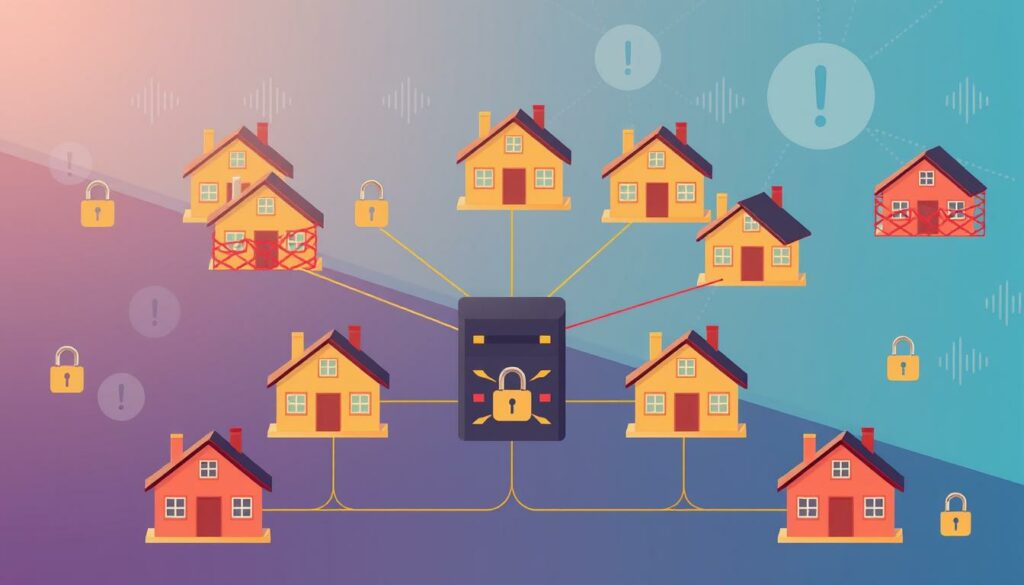What Are Residential Proxies? Uses and Benefits Explained
Imagine being able to browse the internet as though you’re in Tokyo one moment, New York the next, or anywhere in the world. All of this can happen while keeping your identity fully protected.
This isn’t science fiction; it’s the power of residential proxies. Acting as your digital passport, residential proxies allow you to mask your online presence with real, residential IP addresses. This opens the door to a world of possibilities.
Whether you need to bypass geo-restrictions, collect accurate market data, or ensure complete anonymity while navigating the web. Residential proxies are versatile solutions trusted by individuals and businesses alike.
But what makes them stand out? How do they differ from other proxies? And most importantly, how can they help you unlock your full digital potential?
Let’s delve into the transformative capabilities of residential proxies and discover why they’re a must-have tool in today’s internet-driven world.
Understanding Residential Proxies
Residential proxies are IP addresses from Internet Service Providers (ISPs) that link to real devices and locations. Unlike data center proxies, these home proxies are from actual home networks, which makes them more legitimate and harder to detect.
They have a better IP reputation and allow for precise geo-targeting. This is because they use IPs from real home networks.
A consumer proxy, or residential proxy, has many benefits. They have tens of thousands of IP addresses across hundreds of locations worldwide. This vast network makes it less likely that anyone will block them.
Good residential proxy services let users connect through many IP addresses at once. This allows for multiple connections from one location.
Residential proxies can rotate IP addresses, which means the system assigns a new IP for each new connection. This makes it harder to track and block connections.
Users can set the duration for which their IP address remains the same before reassignment. This is usually around 30 minutes. This flexibility, along with the ability to target any country, state, or city, makes them powerful for online activities.
While residential proxies have many benefits, they are more expensive than data center proxies. A budget-friendly option might cost $75/month for 5GB of data. Despite the higher cost, many businesses find it worth it for tasks like web scraping and social media management.
When choosing a residential proxy service, consider data usage, speed requirements, and specific use cases. This ensures you get the most value for your needs.

How Residential Proxies Work
Residential proxies give you unique IP addresses from real homes, sitting between your device and the internet. When you make a request, it first goes through the proxy network, masking your real IP address. This makes it appear as if the request is coming from another location.
This large pool of real IP addresses helps users access content from different cities, states, and countries. Rotating residential proxies automatically switches your IP address, making it harder for websites to block you. This feature is particularly useful for tasks like web scraping, price checking, and accessing geo-blocked content.
The design of residential proxy networks helps bypass anti-scraping blocks by routing your requests through the proxy. This ensures your identity remains hidden while you access content from other locations.
Key Advantages of Using Residential Proxies
Residential proxies give you top-notch privacy and security. They use a residential IP address to hide your online identity. This makes it tough for hackers to get into your system, adding extra protection.
Static residential proxies are great for circumventing geo-restrictions. They let businesses access content from anywhere in the world, which is key for companies working in different markets. They’re also handy for sharing big files safely across regions.
Residential proxies are top-notch for web scraping. They have higher success rates and collect data more reliably than other proxies. Websites are less likely to block residential IP addresses because they seem more like human users.
Digital marketing pros love residential proxies. They help track search engine rankings by location, analyze competitors, and conduct keyword research in different markets. This information is crucial for making good SEO plans and staying competitive online.
Common Uses of Residential Proxies
Residential proxy providers offer powerful tools for various online activities. These home proxies help users access geo-blocked content, conduct market research, and perform web scraping tasks.
Many businesses use them for price comparisons. This helps them stay competitive in e-commerce markets.
Data extraction is another key application. Companies can gather valuable information from websites without triggering anti-bot measures. This makes residential proxies ideal for business automation and tracking public information.
They’re also crucial for brand protection. Firms can monitor the unauthorized use of their trademarks online.
Social media managers benefit from residential proxies, too. They can manage multiple accounts without raising suspicion. Each connection appears to come from a different location.
Ad verification is another common use. It lets advertisers check if their ads display correctly across different regions.
SEO professionals use residential proxies to monitor search engine results pages accurately. This helps them track rankings and adjust strategies accordingly. Website testing is another application. It allows developers to see how their sites appear from different locations worldwide.
Residential Proxies and E-commerce
Residential proxy servers help businesses get important market insights without drawing attention. With rotating residential proxies, companies can check product prices and availability on different websites.
E-commerce companies use residential proxies to monitor prices. This helps them stay competitive by adjusting prices quickly. They also use these tools to improve their search engine rankings, making their websites more visible online.
Residential proxies are also great for managing inventory. They help e-commerce sites get accurate data on product availability. This way, they can keep the right amount of stock, avoiding too much or too little.
These servers are also crucial for understanding competitors. They allow businesses to study their rivals’ moves without drawing attention. This knowledge helps in creating better marketing and products that grab attention in the online world.

Limitations and Challenges of Residential Proxies
While residential proxies offer significant benefits, such as accessing geo-blocked content and enhancing online privacy, they also come with challenges. Users should consider these potential drawbacks before using them.
- Higher Costs: Residential proxies are typically more expensive than data center proxies due to the scarcity and authenticity of residential IP addresses.
- Slower Performance: Unlike data center proxies, residential proxies rely on standard internet connections, which can result in slower speeds. This can be a drawback for tasks that require rapid request processing.
- Legal and Ethical Concerns: Some providers acquire residential IP addresses through questionable methods, potentially compromising user privacy. This highlights the importance of choosing reputable providers with transparent practices, like those outlined by Diversion Web Publishing.
Despite these challenges, residential proxies remain a reliable choice for tasks where avoiding detection is critical. Users should carefully evaluate the pros and cons to determine whether they align with their specific needs and ethical considerations.
Best Practices for Using Residential Proxies
Using a residential proxy network needs careful planning and ethical thinking. To get the most out of it, use IP rotation and respect rate limits. This keeps your proxy setup running smoothly and avoids detection.
It’s key to follow website rules and not overload servers. Also, make sure to comply with data protection laws. Choose trusted providers and use strong authentication to keep your proxy secure.
Keep an eye on how your proxy is doing. This lets you fix any problems quickly. By doing this, you can use your proxy effectively and stay ethical.
Residential proxies are great for hiding your identity. They act like real users, which is perfect for tasks needing authenticity. But, they might be slower and cost more than other types like ISP proxies.
Choosing the Right Residential Proxy Provider
Choosing the right residential proxy provider is important. Look for a large IP pool and wide geographic coverage. Reliable customer support is also key. Bright Data has over 72 million IPs, while Smartproxy has 55+ million. Prices start at $7 per GB.
When picking a consumer proxy, consider data usage costs. Residential proxies charge by data amount, which can be expensive for big needs. For lots of data, consider data center proxies with unlimited plans. Speed is also important — fast IPs are more likely to trigger blocks quickly during web scraping.
Check if providers can rotate through many IP addresses. This is crucial for avoiding blocks during scraping. Some offer mobile proxies for mobile sites or ISP proxies for a mix of residential and data center benefits. Free proxy services are limited, so investing in a good provider is often better for serious users.

Future of Residential Proxies in Digital Marketing
The digital marketing world is changing fast, and residential proxies are key in shaping its future. As the internet gets more regulated, the need for these proxies will grow. They help bypass geo-restrictions and access global content in tech fields.
Residential proxy providers are using AI and machine learning to improve IP rotation. This makes it harder to detect them, making them more efficient and secure. Combining residential proxies with anti-detect browsers is changing digital marketing. It boosts data accuracy and keeps things anonymous.
In the future, residential proxies will get even better. They’ll offer better geo-targeting and work smoothly with big data analytics. With more people using mobile internet, we might see more mobile proxy networks. These advancements will help marketers do better competitor analysis, web scraping, and targeted ads worldwide.
Level Up Your Privacy and File Sharing Game With DivShare
Residential proxies are a versatile tool for businesses and individuals navigating the digital landscape. They enhance online privacy, provide seamless access to geo-restricted content, and support data gathering and market analysis. Whether you’re an e-commerce professional aiming to outpace competitors, a digital marketer refining strategies, or someone prioritizing anonymity, residential proxies empower you to achieve your goals effectively.
To make the most of this technology, it’s essential to understand its applications, advantages, and potential challenges. By choosing a trusted provider, you can integrate residential proxies into your digital toolkit and stay ahead in the ever-evolving online world.
Take your online privacy and secure file sharing to the next level with DivShare. With private and reliable media hosting tailored to your needs, you can confidently share content and maintain secure connections. Sign up today to experience seamless and secure file sharing that complements your digital strategy!